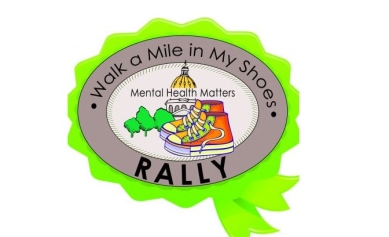EMPLOYEE PAGE
Suicide Awareness Prevention Month - Your Role
Few in the world want to bring more awareness to suicide prevention than mental health providers. You know firsthand the impact, the weight, and the prevalence that suicide has on society today. Suicide Prevention Awareness Month is a good time to reflect on how providers can improve upon how we approach this sensitive issue—and how to better serve the patients that come to you in need and shine a light on the ones who haven’t sought out help just yet. Following are four ways that may help you.
Eliminate Stigma
There is no one better to tear down the stigma that surrounds mental health than those who are most knowledgeable on the subject. Providers can spend time spreading information around their community on the impact of mental health services. The first step is to identify underserved areas in your community or areas in which stigma thrives and deliver education the best way you can. This could be through informational sheets, participating in community events, teaching classes, or sending out newsletters.
Know the Risk Factors
There is a huge range of variables and factors that can lead an individual to become more or less at risk for suicide. As a provider, you are responsible for knowing these risks backward and forwards so you can easily identify them in your clients. According to the CDC, risk factors break down into four categories:
- Individual – Previous suicide attempts, history of mental illness, chronic pain, financial stress, substance use, traumatic experiences, etc.
- Relationship – Bullying, family history of suicide, loss, conflict/violence, isolation
- Community – lack of healthcare, community violence, discrimination
- Societal – Mental health stigma, easy access to means, media portrayal of suicide
Know the Warning Signs
Just as you’re responsible for knowing the factors that put someone at risk for being suicidal, you need to know the warning signs of suicide. The more familiar you are with the signs, the more likely you are to prevent a suicide from taking place. Common warning signs of suicidal thoughts, according to the National Institute of Mental Health, include:
- Talking about – wanting to die, great guilt/shame, the burden on others
- Feelings of – hopelessness, being trapped, no reason to live, sadness, anxiety, pain
- Behavior such as – plans for suicide, withdrawing from friends, gift giving, goodbyes, making a will, risk-taking, mood swings, and substance use.
Deliver Resources
Give as many resources to your clients as possible. If you have people around you who want to be aware of the risks and signs, have informational sheets available for them to learn from. If you have clients who are struggling with thoughts of suicide, first do your job to assess their risk and get them to a place of safety and then connect them with every hotline, crisis number, and community resource they might need now or in the future. The more resources and educational resources you can provide your clients and your community, the better.
Employee Spotlight: Stuart Fielder
What do you do at TTI? At TTI, I am a Senior Case Manager, I do a lot of things related to case management but mainly my role is to assist both the consumers we care for and the case managers that may need assistance for their respective caseloads.
What do you love most about your job? The flexibility and being able to own my schedule and work with the people I do. I enjoy making others happy, and being in a position to do this every day is valuable to me.
What inspired you to join the team here? I used to work at a crisis residential unit and TTI would normally frequent the unit and I would get to know some of the case managers that worked for TTI and was exposed early in my career to what I may or may not choose to do.
What have been some of the most important lessons you’ve learned throughout your career? Accountability. If you make a mistake (Which you will), to own it. It’s better to be honest and communicate your mistakes with others so that you may be able to explain your thinking as to why you chose to make the decision you did as opposed to hiding it.
When did you first know that you wanted to pursue a career in this field? We took an aptitude test in middle school and I went with Psychology as a career path!
What makes you unique as a team member? My attitude, I’m always smiling and I’m a very big personality and like to make jokes and keep everyone laughing.
What do you think is the most important skill that you bring to the table? Probably my ability to go with the flow and accept things as they are and adapt as needed.
What is the most important lesson that you’ve learned from working with the team? My team typically likes when I make them breakfast.
Tell me a bit about your family. I am the oldest of three brothers, My mother and father both still live in North Branch where I graduated high school. I am married to my wife Shelby who works full time as an art therapist for tender hearts in Bay City. We bought our house in 2019 and have two dogs (Goose and Jackson) my Cat (Chicken Nugget) and my rabbit (Suki).
What do you enjoy doing outside of work? Disc Golf. I am a PDGA member, and typically spend my weekends at the parks outdoors with my friends or at tournaments. I love camping, fishing, cooking out, and traveling.
What would your perfect weekend look like? When it’s nice out (Sunny and 70) and I’m around the family playing backyard games and having fun!
Are there any TV series, movies, books, etc., that you’re into right now? We typically watch survivor every Wednesday, would love to try out and be on it one day
What is a dream that you want to make come true one day? To live completely off grid and have a homestead on a large farm.
What’s your favorite type of food or cuisine? Pizza! Any Kind (No anchovies)
If you could pick any superpower, what would it be? Definitely time travel.
If you could travel anywhere, where would you go? I would love to go to Egypt.
Date Change for Walk a Mile Rally
The Walk a Mile in My Shoes Rally is now being held Tuesday, Sept. 17 from 12:30-3 p.m. Remember, this annual rally aims to highlight the need for increased funding for mental health services, raises awareness of behavioral health needs in health and policy discussions, and works to banish behavioral health stigmas. As a TTI employee, your participation is valuable as providers and advocates rally together on the Capitol Lawn for increased mental health funding and the need for behavioral health to be continually included in policy discussions.


